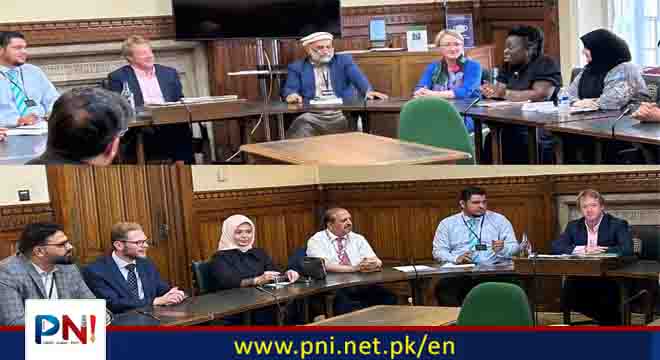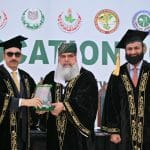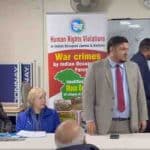LONDON (PNI) A Turkish academic has briefed British lawmakers on the plight of half-widows in Indian Illegally occupied Jammu and Kashmir (IIoJK).
In her presentation at a roundtable conference held at British parliament in June, Dr. Saliha Uysal, an assistant professor at Istanbul University, called for international campaign to raise issue-specific awareness, in the case of Kashmiri half-widows.
Half-widows is a specific term used to describe those Kashmiri women whose husbands have been illegally abducted by Indian forces in past more than 30 years and their whereabouts are not known.
Saliha said the Kashmiri leadership should recall the landmark consensus agreed by Islamic scholars (Ulema), in 2014, regarding the half-widows.
The Ulema had reached a consensus that half-widows can remarry in four years after their husbands were forcibly disappeared.
“It needs to be fully implemented as it will have an unprecedented impact on the lives of Kashmir’s forgotten survivors,” the Turkish academic emphasized.
She said a complete survey of those disappeared “must be undertaken and the results should be presented to the public.”
“Legal means to challenge unhindered as a ruler Indian authority in occupied Kashmir be explored to hold those accountable responsible for forced disappearances,” said the Turkish academic.
Saliha said legal opinion must be explored whether issue of Kashmiri half-widows be raised under the United Nations Convention on the Elimination of All Forms of Discrimination against Women (CEDAW).
“If it is possible to bring up issue of half-widows under the CEDAW, it will automatically lead their case to the UN General Assembly,” she told the roundtable conference held at the British conference which was organized by Tehreek-e-Kashmir UK.
Saliha said Kashmiri leadership should explore “means and ways of international funding for the half-widows is a must to support their normal lives and education of their children.”
“Being half-widow was not their choice … This was not the life they imagined … But they were forced into this life in the occupied territory,” said Saliha, who teaches Islamic Psychology at Istanbul University.
Follow the PNI Facebook page for the latest news and updates.








